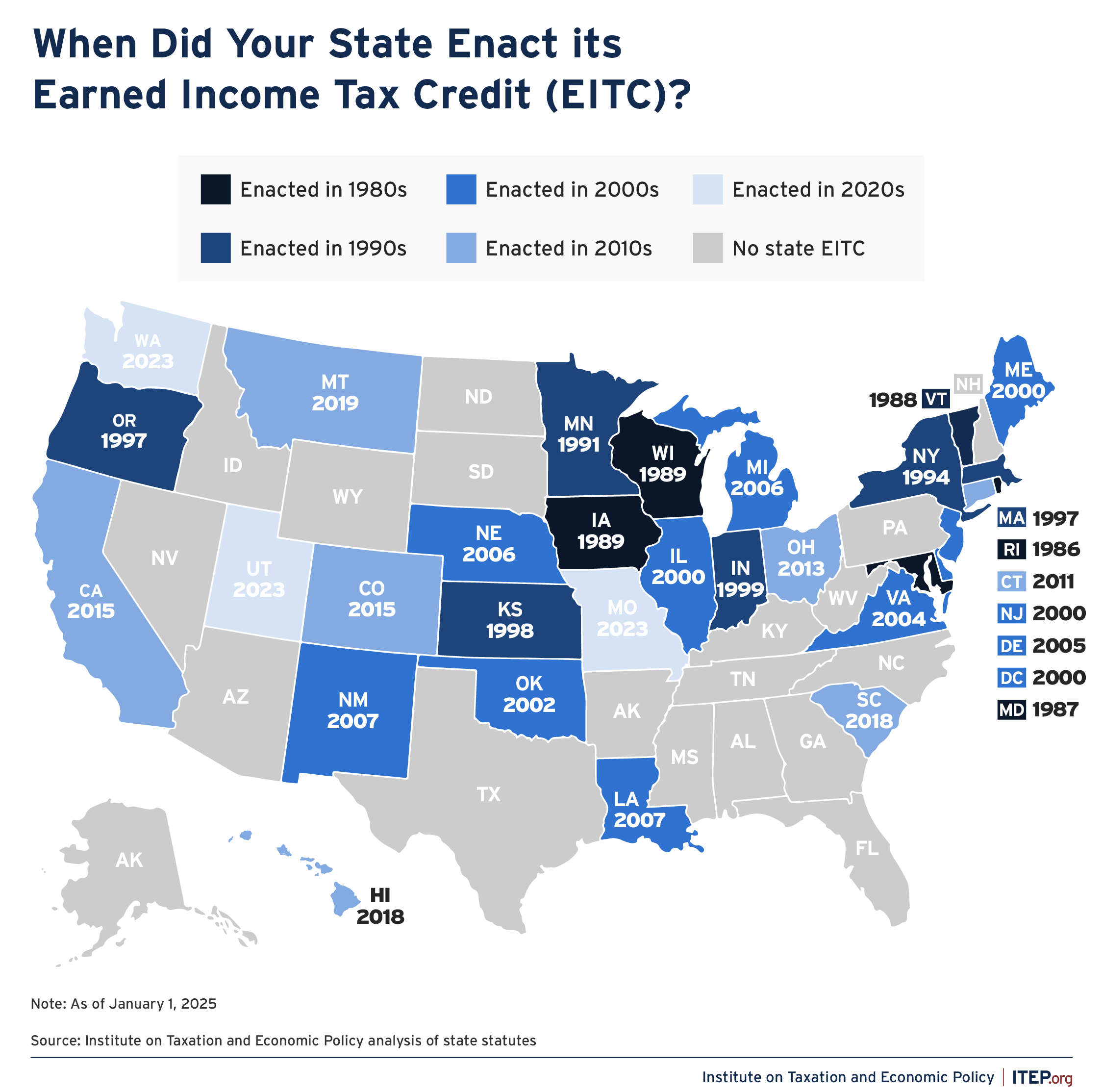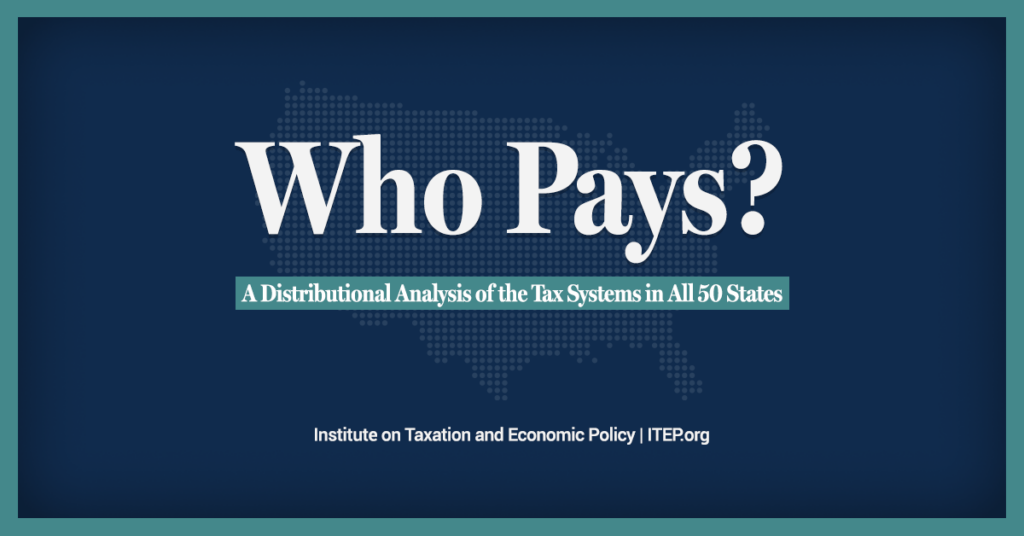The Earned Income Tax Credit (EITC) supports millions of workers and families nationwide, and it continues to grow in states and localities across the country. The EITC is an undeniably important tool available to lawmakers to lift up workers, reduce the regressivity of state and local tax systems, and tackle poverty.
After seeing the success of the federal EITC, states began enacting their own EITCs in the 1980s. Rhode Island became the first state to enact an EITC in 1986. By the turn of the millennium, 11 states had passed an EITC. Today, 31 states plus the District of Columbia and Puerto Rico offer EITCs. Local EITCs can also now be found in Montgomery County, Maryland, New York City, and San Francisco where they benefited 700,000 households in 2023.
State and local taxes are overwhelmingly regressive, requiring low and middle-income families to pay more of their income in taxes than wealthier taxpayers. This makes the EITC a helpful tool at the state level. Refundable tax credits can offset the upside-down nature of state and local tax systems, which often rely heavily on regressive sales, excise and property taxes.
The map below shows which states have an EITC as well as the year their EITC was first enacted.






